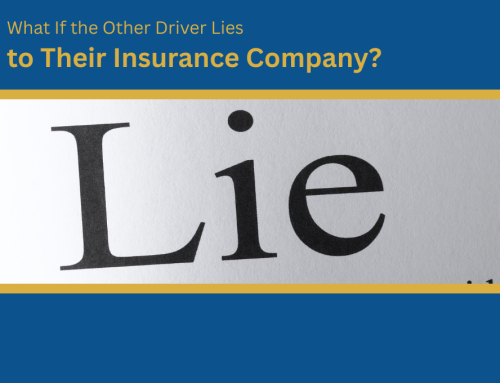
When clients receive a settlement after a personal injury case, one of the first questions they often ask is: “Do I have to pay taxes on this money?” It’s a fair concern. After all, most people expect their compensation to go toward medical bills, lost wages, or pain and suffering, not the IRS. But the truth is, whether a lawsuit settlement is taxed depends on the type of compensation and the details of the case.
At Lach Injury Law, we help Las Vegas injury victims understand what happens after the settlement check arrives. Our goal is not only to fight for the highest possible recovery but also to prepare our clients for what comes next. That includes the possibility of tax implications based on how a settlement is structured.
In this blog, we explain what types of settlement money are typically taxed, what portions are usually exempt, and how to protect yourself from unexpected tax consequences. If you’re currently pursuing a claim or recently received compensation, this information can help you make informed decisions.
What Parts of a Personal Injury Settlement Are Tax-Free?
In most personal injury cases, compensation for physical injuries is not taxed. The IRS generally excludes damages for physical injuries or physical sickness from your gross income. This includes medical expenses, hospital stays, surgeries, physical therapy, and other related treatments.
That exemption also applies to pain and suffering tied directly to the physical injury. If you were in a car crash and suffered a back injury that caused both physical pain and emotional distress, the settlement for those damages would likely not be subject to tax. The same goes for cases involving traumatic brain injuries, spinal damage, or long-term medical conditions. You can learn more about serious cases like these by visiting our Las Vegas brain injury attorney page.
Additionally, lost wages may be tax-free if they were caused by the physical injury itself. For example, if your injury required you to miss work while recovering, the wages lost during that time are generally excluded from income taxes. However, as we’ll explain below, not all lost income is treated the same.
When Is a Settlement Considered Taxable?

Certain portions of a settlement may be taxed, depending on how they are categorized. One of the most common examples is emotional distress not linked to a physical injury. If a case involves emotional harm without an underlying physical injury—such as stress caused by workplace harassment—that compensation is often considered taxable.
Another key area is punitive damages. These are awarded to punish the defendant for gross negligence or intentional harm, not to compensate you for your losses. Because of that, the IRS treats punitive damages as taxable income. If your settlement includes both compensatory and punitive elements, they will be separated for tax purposes.
There are also tax implications for lost income claims. While lost wages due to physical injury are generally tax-free, compensation for wage loss unrelated to physical harm—such as business interruption or career impact—may be subject to federal income tax. This issue can get complex in workplace injury cases, like those we handle as Las Vegas workers’ compensation attorneys, so legal guidance is crucial.
How Taxes Apply to Structured Settlements
Some injury victims choose to receive their settlement as a structured payout over time instead of a lump sum. Structured settlements can offer long-term financial stability, especially in cases involving catastrophic injuries or long-term care needs.
With structured settlements, the tax rules follow the same principles. Payments for physical injuries remain non-taxable, even when spread out over many years. However, if any portion of the settlement includes interest or investment gains, that income may be taxed.
Many clients ask about the pros and cons of structured payouts during their case. At Lach Injury Law, we guide clients through these choices, especially in serious claims like wrongful death or defective product injuries, where large settlements are involved.
Key Tax Considerations After a Settlement
Understanding taxes on a settlement is important, but even more important is structuring your claim carefully from the start. The way your claim is negotiated, written, and categorized can affect what the IRS will later consider taxable.
Document Everything Clearly
When drafting your settlement agreement, make sure the breakdown of damages is spelled out. Separate the amounts awarded for medical bills, pain and suffering, and other categories. This documentation can help prevent confusion during tax season.
Avoid Combining Damages
Try to avoid lumping different types of damages together in the agreement. If emotional distress, lost wages, and punitive damages are all included in one line item, the IRS may treat the entire amount as taxable. Your legal team should advocate for clear separation.
Consult a Tax Professional
Every case is different. A settlement in a slip and fall accident may be handled differently than one involving a vehicle accident. Always consult a licensed tax advisor or CPA after your case resolves, especially if the amount is significant.
How Lach Injury Law Helps You Plan Ahead

At Lach Injury Law, our job doesn’t end with the settlement. We go further to help clients understand the real-world impact of their compensation. That includes discussing potential tax consequences and working with experts when needed to structure the most favorable outcome.
Whether you’re filing a new injury claim or navigating the next steps after a payout, our team is here to support you. From workplace injuries to grocery store accidents and other premises liability cases, we ensure our clients get the compensation they deserve—and keep as much of it as possible.
If you want more clarity on tax rules, visit our resources page or speak directly with a member of our team. We’re always here to help Las Vegas residents understand their legal rights.
Need Help After a Settlement? Let’s Talk

Taxes should never catch you off guard after a hard-won injury case. If you’re unsure how your settlement might be taxed or want to avoid costly surprises, Lach Injury Law is here to help.
Our firm is built on clarity, trust, and results. We take time to explain every step of the legal process, including what happens after your case is resolved. Whether you’re dealing with a complex injury, an insurance dispute, or a long-term financial impact, we bring knowledge and care to every case.
You can explore our practice areas, read our latest blog posts, or contact us directly for a confidential consultation. When it comes to protecting your compensation and your peace of mind—we’re ready to fight for what’s fair.






